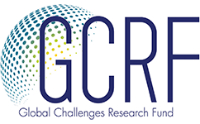Improving prospects for people with kidney disease
It’s rare in the UK, so you may not have heard of nephrotic syndrome, but in low-to-middle income countries it’s fatally under-recognised and under-resourced.
The challenge
If you know anything about the severe and chronic kidney disease, nephrotic syndrome, it’s probably because of Jonah Lomu – New Zealand’s rugby superstar was its most well-known patient. While Lomu’s disease was correctly diagnosed, many cases around the world are not.
The reasons for nephrotic syndrome’s higher incidence in low-to-middle income countries aren’t well understood, and with a lack of both clinical expertise and specialist drugs, identification and treatment is difficult.
What we’re doing
Our laboratory is a world leader in kidney disease such as this, with crucial study experience that ranges from the cell-level to entire populations. We’re sharing our expertise with dedicated, talented clinicians working with limited resources at large centres in Delhi, Bangalore, Sri Lanka and Johannesburg.
We’re helping them set up patient registries, as well as a global network of academic contacts. We’re training staff in the latest study techniques and sharing our best practice for clinical trials.
How it helps
Introducing our cutting-edge lab work to the places it’s needed most means we can study large groups of patients and collect molecular data so that everyone better understands this disease.
By extending the UK’s innovative, national registry for kidney disease, which we lead, patients in the countries we’re working with gain access to lots of practical information about their conditions which would otherwise be unavailable. These registered patients are also a resource, able to help themselves and others by taking part in ongoing research surveys.
Most pressingly, renal disease is disproportionately expensive to study and manage, which means treatment is harder to come by and mortality rates are higher than they might be. By combining our skills with the knowledge of frontline doctors, we’re working together to develop more effective global healthcare that’s both reducing costs and saving lives.
Related research groups
Partner organisations
- All India Institute of Medical Sciences, Delhi
- The University of Peradeniya, Sri Lanka
- St John’s Medical Institute, Bangalore
- Witwaterstrand University Hospitals, Johannesburg
Funders
Global challenge research
We're tackling the world's biggest problems through collaboration and innovation.

